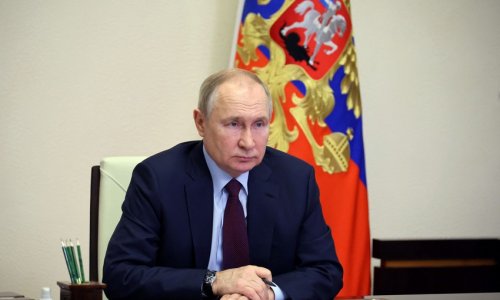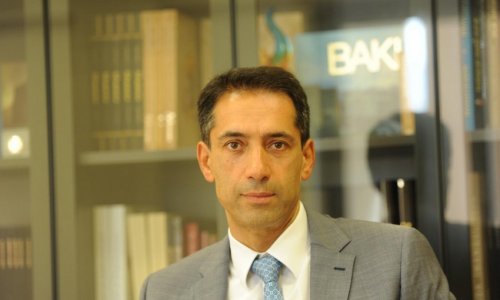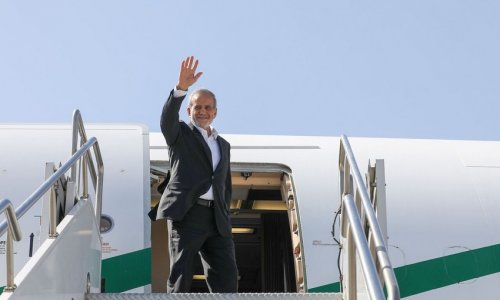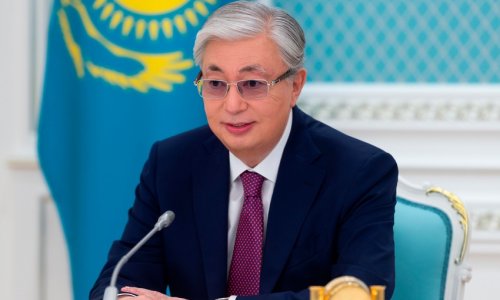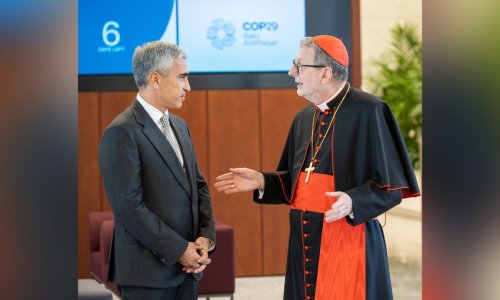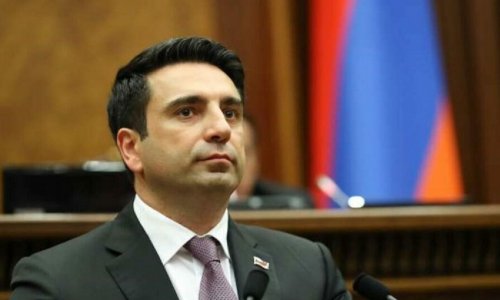By Claude Salhani
Armenia and Azerbaijan, who are in a state of war despite a ceasefire, have three options on how to approach the stalemated conflict over Nagorno-Karabakh, a dispute that lasted more than two decades.
Each option comes with a sour pill, as there is no magic solution. But such is the reality of trying to find a peaceful resolution to a bloody conflict.
The two sides can agree to disagree and continue with the status quo. They can continue to exchange gunfire and mortar rounds on a daily and nightly basis and to lob rhetoric and insults at each other. There are both advantages and setbacks with this option. The advantage goes to Armenia -- at least in the initial stage -- as it gets to keep all the occupied lands -- 20 percent of Azerbaijani territory -- that it grabbed when the Soviet Union broke up. This, however, is a very shortsighted option, as it lays down the groundwork for a potential military escalation down the road. At some point in time, Baku might feel it has no other option.
Unwanted as it may be, a military confrontation might seem as the only solution. Two new factors that Yerevan may want to consider: the election of Recep Tayyip Erdogan to the Turkish presidency, and the nomination of Ahmet Davutoglu to the post of prime minister. The two men are staunch supporters of Azerbaijan and have vowed to support Baku in its efforts to reclaim the occupied territories. Turkey has closed its borders with Armenia in solidarity with Azerbaijan.
Armenia, in spite of its many domestic headaches and internal economic, political and social ills may feel somewhat untouchable while under Russian protection as it is currently. But that can change at a moment's notice if Russia becomes too preoccupied in another conflict, such as in Ukraine. This would leave Armenia vulnerable and out in the cold.
The second option is a military one and while Azerbaijan would undoubtedly have military superiority, there are great risks involved in embarking on a military campaign as the final outcome is always unpredictable and could lead to a regional conflagration.
That leaves the third and only real viable option: dialogue and a peaceful resolution. While this be the smartest solution to follow, it will also be the most difficult, as it would involve having to talk to one's enemies.
A conflict by its very nature is usually not a pleasant experience. And a conflict such as the one in Nagorno-Karabakh, that carries with it heavy baggage in the form of hatred of the other, given the history of violence and bloodshed that has tainted this land.
But in order for any dialogue to take place there needs to be a starting point where the two sides can begin to meet and to exchange their views. That is difficult to happen when the antagonists continue to exchange fire along the line of separation and in strong worded communiqués.
"The rhetoric that we have been hearing on both sides has not been encouraging, as it only exacerbates and polarizes different positions," Irfan Siddiq, Britain's ambassador to Baku told AzerNews newspaper on Thursday.
"It increases hatred of the other and what we need in this time is understanding of the other. I know this is a difficult thing to ask for in this heated environment when people say why should we understand people who kill our neighbors and take our land, but for there to be any resolution that is what will be required, and its what we have seen through history," the ambassador said.
(The Huffington Post)
Bakudaily.Az


